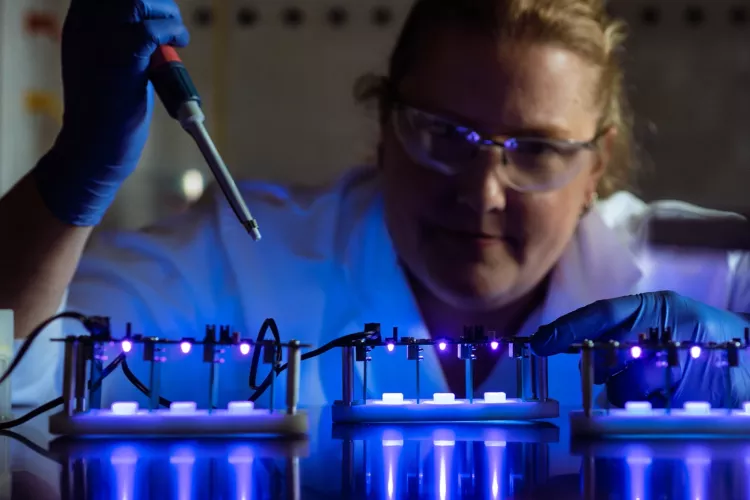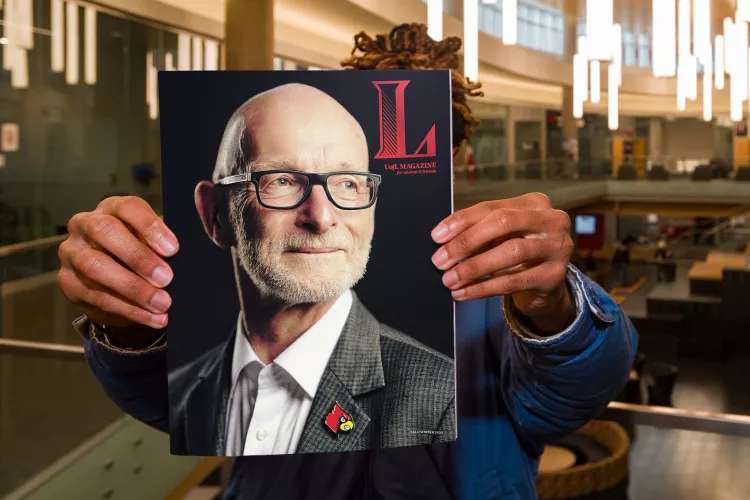UofL researchers develop VR technology to combat eating disorders
October 2, 2024University of Louisville researchers have been awarded a prestigious grant from the National Eating Disorders Association (NEDA) to further develop a virtual reality technology aimed at treating eating disorders.
Eating disorders affect an estimated 9% of Americans — nearly 30 million people — and can impact a person’s eating behaviors and perceptions about food and their bodies. The UofL prototype technology, dubbed Awaken Emerse, helps users virtually face and overcome their associated fears, such as the fear of gaining weight.
“Research shows exposure treatment can be really effective in taking back control over these devastating and life-altering fears,” said Christina Ralph-Nearman, a UofL College of Arts and Sciences assistant research professor, researcher and co-inventor of the technology. “Our virtual simulation allows people to do that in a safe way.”
In a pilot study, Awaken Emerse — invented by Ralph-Nearman and researcher Cheri Levinson — was shown to be effective in helping participants face their fears of gaining weight. The new grant, $125,000 through the NEDA’s Feeding Hope Fund, will support work by the inventors, along with Andrew Karem of the J.B. Speed School of Engineering, to expand the platform to be more inclusive of all body types and sizes, ethnicities, races and gender identities and to further test outcomes in a clinical setting.
“Eating disorders don’t just affect one type of person — there are a multitude of factors that can influence them,” said Levinson, associate professor and director of the Eating Anxiety Treatment (EAT) Lab. “Treatment and prevention options should reflect that full range of experience.”
The NEDA grant comes on the heels of some $11.5 million in funding from the National Institutes of Health (NIH) to support Levinson’s work to better understand and address some of the most devastating effects of eating disorders. That research will investigate how eating disorders may develop in childhood and adolescence, their contribution to suicidal behaviors and how innovative personalized treatments, like VR simulation, may offer hope.
“Despite the high prevalence of eating disorders, there still aren’t many options for treatment and prevention,” she said. “This work will not only create new options by leveraging technology, but open previously unopened doors for treating people on a personal, individual level.”
Work to develop the VR technology has also been supported by the UofL Office of Research and Innovation’s intellectual property and new ventures teams. This includes patenting, coaching by entrepreneur-in-residence Alice Shade, and training and financial support through two innovation development programs: KYNETIC, focused on furthering biomedical technologies, and PRePARE, focused on technologies that address a health or societal problem resulting from the COVID-19 pandemic.
Baylee Pulliam leads research marketing and communications at UofL, building on her experience as an award-winning business, technology, health care and startups reporter. She is a proud product of the UofL College of Arts and Sciences, where she earned her undergraduate degree in English. She also holds an MBA, a Master of Arts in Organizational Leadership and is pursuing a Ph.D. in the latter with a focus on corporate innovation.



